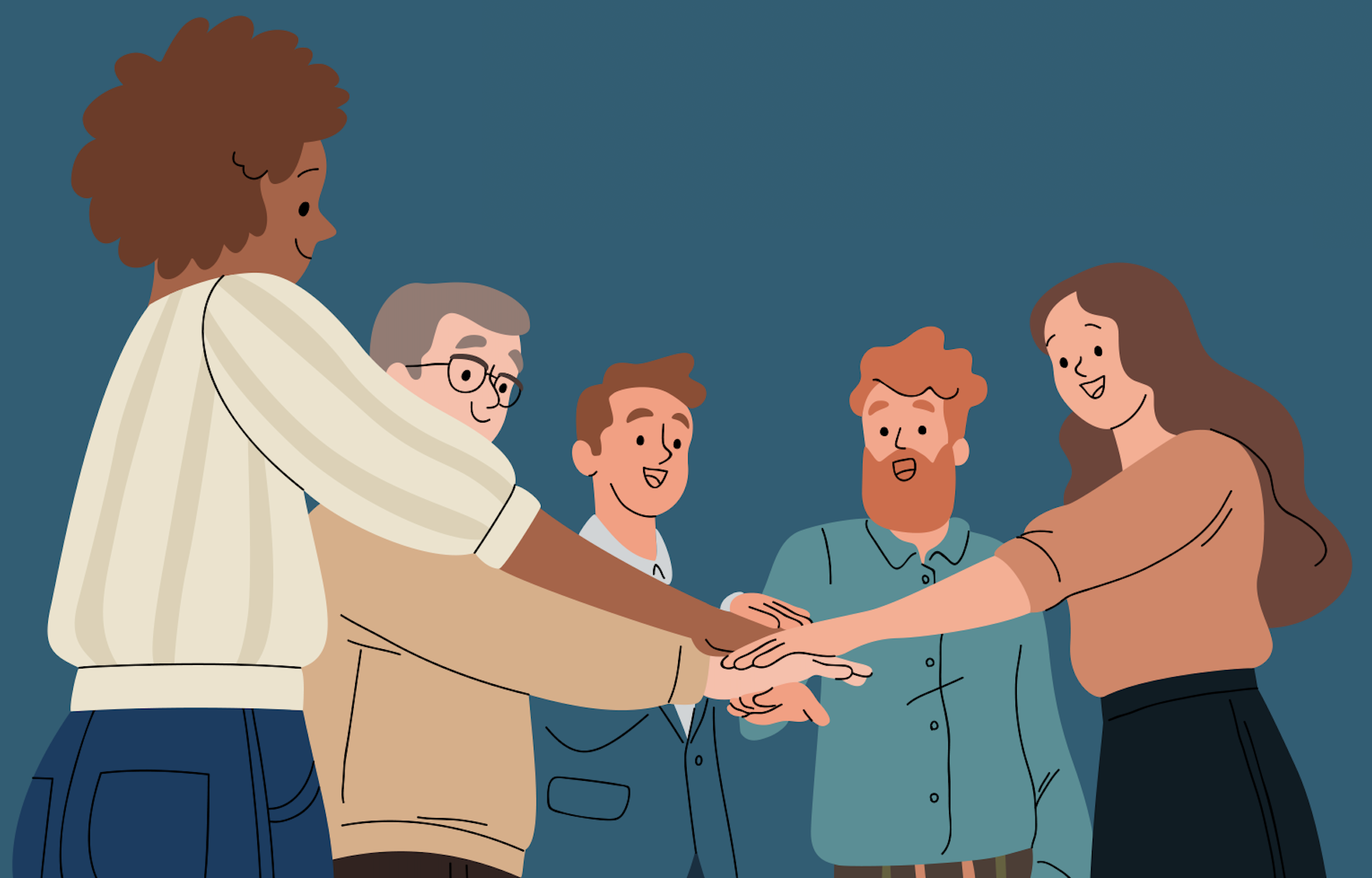Blog by Richard Feistman, Ph.D.
Moving has been constant in my life. I was born in Oregon, raised in California, trained and worked in New York, spent a year in China, trained and worked some more in Missouri, and now my family is putting down roots in New Hampshire. My spouse has a similar zig-zag story that began to align with mine in Missouri. When you make all these moves, there is a good chance you are going to be far away from people you know and love. Yet, what amazes me, looking back, is how at every stop I made connections that stretch across time and location. These were not close relationships, but rather friendly acquaintances. Upon further reflection they have become the bedrock of my support network. In other words, those more casual, informal relationships, my weak ties, matter.
In my work life, I think a lot about communities and how to make them stronger. I try to improve systems so they are more likely to build people up and help them achieve their goals. This work often focuses on the people we might never see - providing resources to the guidance counselor who helps my son’s friend or connecting systems so a new worker can train to be a city mechanic that keeps a streetlight working. I also work to support strong family relationships, providing resources to spouses and parents to ensure connection and warmth is maintained. These are the types of communities I think of first, those we keep close and those we don’t really know on a personal level. Yet, when I attended the National Council on Family Relations Conference last week, I remembered how much I have gained from my weak ties - the community of people that I have accumulated over the course of my life as I moved between jobs and cities. At the conference I had a series of small interactions with people from nearly every one of those stops I outlined in my zig-zag. These interactions were brief and simple (e.g., talking about new jobs, boat dreams, caring for family), but they provided general warmth and a sense of connection I would otherwise lack in my day. These types of communities help sustain us personally and professionally, when things are fine and when life gets hard.
My mother also had a network of loose connections. My mom was not someone who formed strong bonds with lots of people. The first third of her life was marked by troubled relationships with those who should have cared for her and a few strong relationships with peers to keep her going. The second third of her life was a combination of strong connections with her children, but a troubled spousal relationship that provided limited support. In the final third of her life, she was supported by a sprawling group of weak ties that provided her comfort and a sense of self. As a young adult I talked to my mom often, as did my siblings - but we struggled to provide her with daily support because we were doing our own zig-zagging to establish our lives. Many of us rely on a spouse or close friend for ongoing support, but for those without close community, weak ties become essential. For my mom, those people were her coworkers at the local U.S. Post Office.
Anyone who works at a post office would not initially identify it as a wellspring of support. In fact, in general conversation, my mom would frequently tell me how much she hated her job. However, as happens when you spend every day in the same place for 30 years, she knew every. single. thing. that happened there. She chatted with me about it each weekend and I could not understand why she stuck around that job. My siblings and I talked to her about other jobs and opportunities, yet she never left. Now, I understand she stayed because that was her community. That is where she had all of those ties that made her feel connected.
My mom passed away in 2019. Pancreatic cancer took her life quickly at age 65 - but we still had enough time to move her closer to us for a couple months and we even got to have one last Thanksgiving together. Pie made her smile, even though she couldn’t eat much. My siblings and I came together to form a strong support network for her during that time, but we also saw her network of weak ties activate in response to her diagnosis. I saw it in a young letter carrier who stopped by to say goodbye before we got on a plane to move her from California to Maryland, an older counter clerk who told me stories about my mom as we cleared her locker, and a longtime coworker who quietly wept while I gave her an address where she could send a card. Those people mattered to my mom and my mom mattered to them, no matter how little they really shared about their lives outside of work.
The daily interactions we have with our communities matter. This Thanksgiving I am thankful for the small waves from bus drivers, the smirk of a co-worker talking about raking leaves, and even the random ‘like’ on LinkedIn from a coworker from 15 years ago. Some of my colleagues joke that you can sum up a lot of relationship research into “Be nice to people” - and as I read evaluations of organizational health data I often see comments like, “Isn’t most of this just about being a good person?” Yes - but somehow we don’t always lead with kindness.
For this Thanksgiving season, I hope you offer a gesture of connection and good will to some of your loose ties. You might just be adding to the sense of community I am talking about. Oh, and if you can, call your mom.

